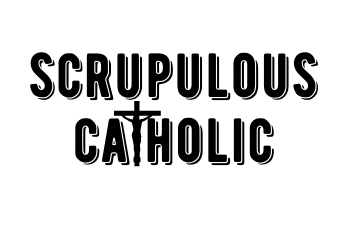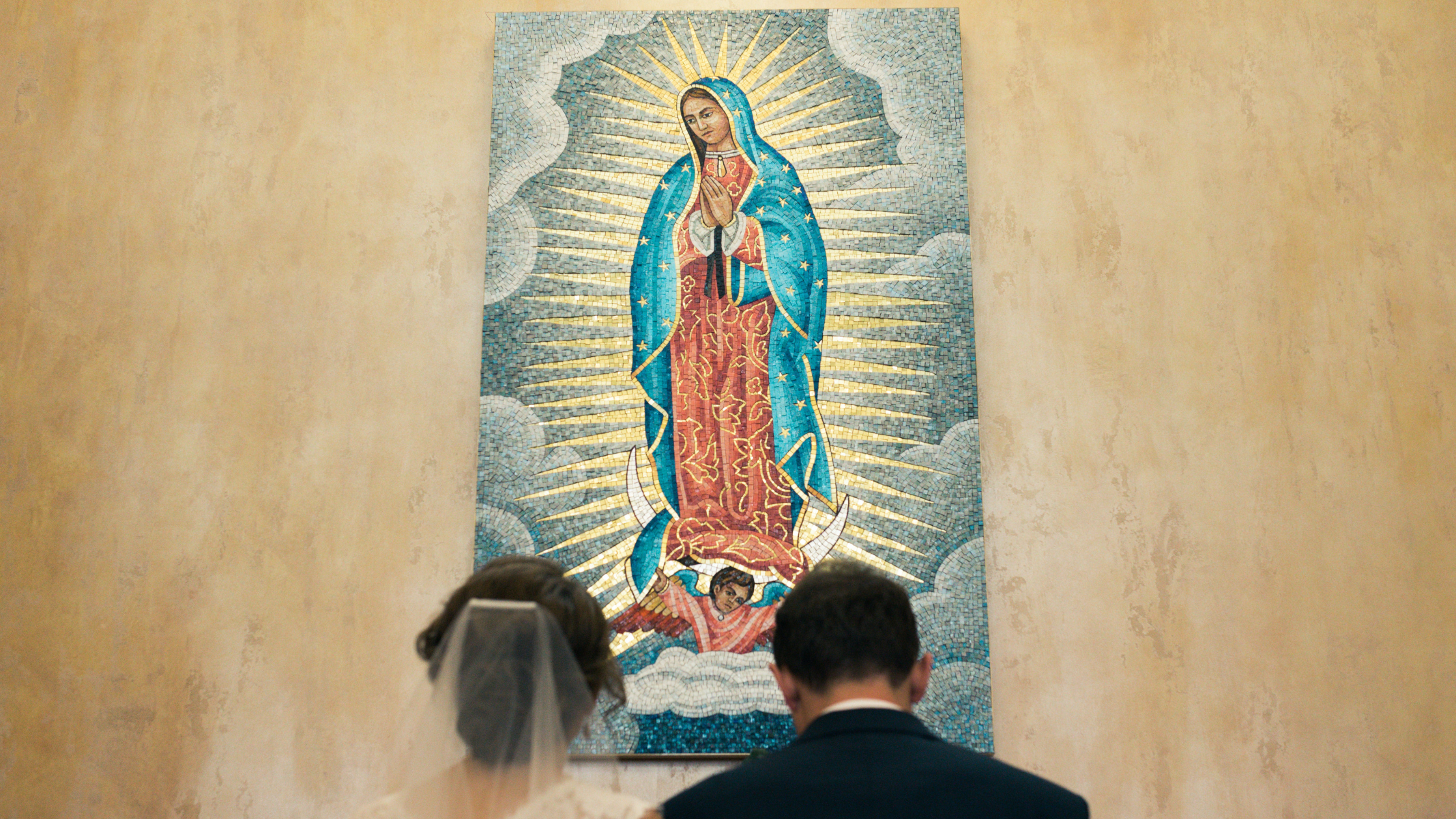One time, as I was watching, the news about the weddings of a celebrity couple just flashed through the screen. Yes, you read it right, weddings! According to the report, the reason why there were two ceremonies is that the husband is Catholic and the wife is Born-Again Christian. It got me curious because as a Catholic, I know there is only one wedding ceremony and that is inside the Church. And the couple should be both Catholic. I did not know that marriage between couples with a different religion is possible. And as someone who just reverted to practice my faith, I wondered, is it a sin to be unequally yoked?

When a man and a woman marry, they enter into a covenant with God. This covenant is the Holy Matrimony. It is a lifelong commitment between two people who love one another. They are to build a family and raise their children in the Faith.
CCC 1601 “The matrimonial covenant, by which a man and a woman establish between themselves a partnership of the whole of life, is by its nature ordered toward the good of the spouses and the procreation and education of offspring; this covenant between baptized persons has been raised by Christ the Lord to the dignity of a sacrament.”
For couples who share the same religious belief, although there are going to be ups and downs along the way, they are more likely to get through these because of the unity in faith. But what if the belief itself causes conflicts? Can they remain strong despite the differences? What are the challenges and how can they overcome these if they are unequally yoked?
What does being unequally yoked mean?
The phrase actually comes from the Bible, it means “to be joined with another person who is not similar.”
In other words, it is when you’ve entered into some form of relationship with a person who is very different from you or who does not share the same beliefs.
Thus, unequally yoked is not exclusively for romantic relationships such as marriage. There could also be unequally yoked friendships. As long as there are major differences in beliefs, there could be an unequal yoke.
Catholic Perspective
According to the Catechism, the Church allows Catholics to marry non-Catholics.
CCC 1635 According to the law in force in the Latin Church, a mixed marriage needs for liceity the express permission of ecclesiastical authority. In case of disparity of cult an express dispensation from this impediment is required for the validity of the marriage. This permission or dispensation presupposes that both parties know and do not exclude the essential ends and properties of marriage; and furthermore that the Catholic party confirms the obligations, which have been made known to the non-Catholic party, of preserving his or her own faith and ensuring the baptism and education of the children in the Catholic Church.
But, there are conditions as follows:
- Both parties know and do not exclude the ends and properties of marriage
- The Catholic spouse intends to preserve the faith
- The Catholic spouse is willing to ensure the baptism and education of the children in the Church
Now, let’s answer the question.
Is it a sin to be unequally yoked?
No, it is not a sin. But, the Catholic spouse has a task to work for the consecration of the non-Catholic spouse which can lead to free conversion to the Catholic faith.
Mixed Marriage Challenge
Although not a sin, mixed marriage is challenging. It takes a lot of patience and understanding, especially when you’re deeply religious yourself.
The Church teaches that the couple should be aware of their differences and work towards matrimonial harmony. It also recognizes that this can be difficult for some couples who are trying to balance their religious differences with their love for one another.
The couple could have a hard time agreeing on certain matters related to faith. For example, agreeing on how frequently should they attend Church together or what activities they should do as a family.
Similarly, suppose the spouse or significant other holds opposing political beliefs. In that case, it will be tough for one to agree on who to vote for and who among the candidates would best represent each interest.
Since the significant other does not hold the same belief as you, it will create an imbalance in your marriage, which may lead to unhappiness.
As a result, being unequally yoked is commonly viewed as “wrong” or “unwise” rather than sinful.
Conversion
Every person has a right to follow their own beliefs, but it is also important for couples to discuss what they believe and how they feel about certain issues to agree on how they want their life together to look.
If one person is more religious than another, then this may cause problems within their relationship if neither party is willing to work together towards compromise or understanding.
While many couples do manage to find common ground when it comes down to religion and politics, it can still cause problems over time if both parties aren’t willing to compromise on some issues or even accept each other’s differences without question.
Despite all that, we can still use this relationship as a way to share Christ’s love and truth and lead them closer to Him. As mentioned, it is the Catholic spouse’s task to consecrate the non-Catholic which can lead to conversion.
Can two believers be unequally yoked?
No, though, there could be differences in some of the Church’s stances. There are Catholics who abide by all the teachings of the Church. And there are those who have exceptions. In this case, there could be an unequal yoke.
Conclusion
The Catholic faith is based on God’s love for all people. We should not exclude others from our lives because they do not share our beliefs.
Instead, we should continue to live out our faith. So that eventually, through prayer and God’s grace, we can convert people around us. And together we can worship God in one Faith.
St. Rita of Cascia, Patron Saint of Difficult Marriages, pray for us.

